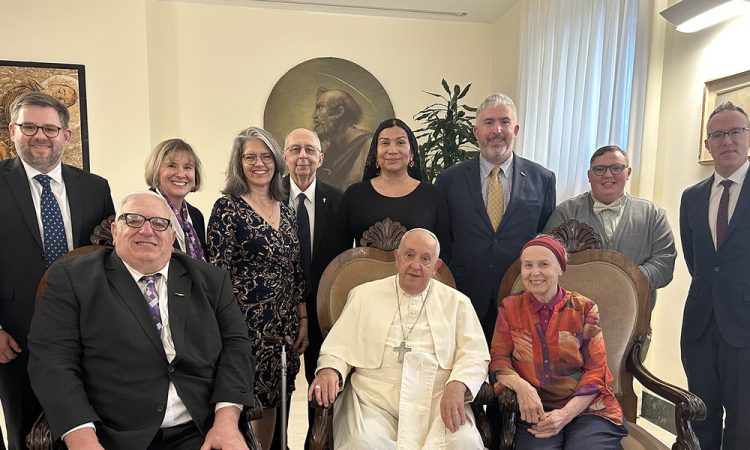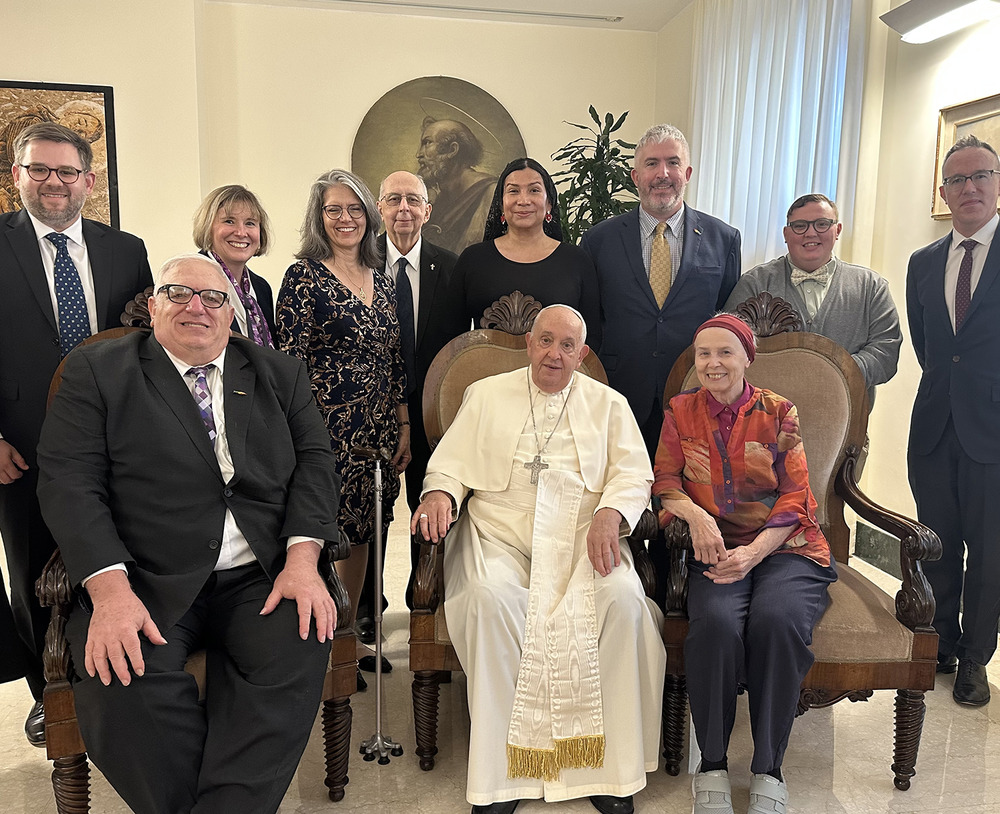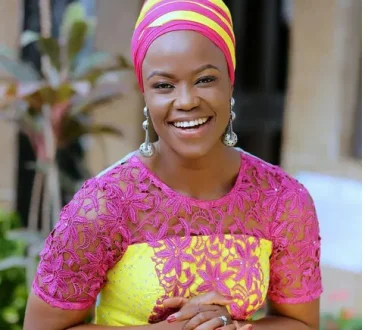Pope Francis Meets Transgender and Intersex Catholics: A New Step Toward Inclusion or Just Symbolic?

In a move that has captivated attention worldwide, Pope Francis recently met with a group of transgender and intersex Catholics, marking what some are calling a significant step towards greater inclusion of LGBTQ individuals within the Catholic Church. This unprecedented meeting, arranged by New Ways Ministry, a U.S.-based Catholic organization that advocates for LGBTQ people, took place on October 16th at the pope’s residence, Casa Santa Marta, in Vatican City. The encounter followed months of correspondence from Sister Jeannine Gramick, co-founder of New Ways Ministry, who expressed disappointment that the Vatican’s recent declaration on human dignity, Dignitas Infinata, had not directly engaged with transgender or intersex Catholics.

Sister Jeannine Gramick’s concern arose after the publication of Dignitas Infinata in April, which, while calling for the respect of every person’s quality of life, deemed gender-affirming medical care as “incompatible with human dignity.” This raised alarms within LGBTQ communities, especially since, as New Ways Ministry Executive Director Francis DeBernardo explained, “Part of the problem is that Vatican documents had not consulted transgender, intersex people, or any of the medical professionals who work with them.” In response, Gramick began writing to Pope Francis, urging the Church to hear from those most affected by these theological pronouncements.
At the meeting, members of the group shared their deeply personal experiences with depression, suicidal thoughts, and the mental health toll of being marginalized, especially within religious spaces. They also spoke candidly about the life-saving impact of gender-affirming medical care, asking for more acceptance and understanding from the Church. As reported in The Washington Blade, DeBernardo recounted that although Pope Francis did not respond verbally during the meeting, his body language conveyed deep empathy. “He clutched his cross and looked sincerely pained as he listened to people describe their difficulties,” DeBernardo shared, adding that the pope “nodded vigorously when they talked about how positive medical transition was for them.”
This meeting comes on the heels of a growing tension between Catholic doctrine and the Church’s pastoral care for LGBTQ individuals. While the Catholic Church officially condemns same-sex sexual relations and rejects same-sex marriage, Pope Francis has gained a reputation for being more inclusive. Notably, the Vatican reversed a 2015 ban on transgender people serving as godparents and approved the blessing of same-sex couples, though it still stops short of endorsing same-sex unions. These nuanced shifts under Pope Francis have led to widespread debate on whether the Church is evolving on LGBTQ issues or merely softening its tone without substantial doctrinal changes.
The group’s plea for greater acceptance within the Church comes at a crucial moment. Their stories had already been shared with over twenty U.S. Catholic bishops earlier this year, and they hope that Pope Francis’s quiet but empathetic response sets a precedent for other Church leaders. The question remains: will this meeting spark meaningful changes in the Catholic Church’s approach to LGBTQ inclusion, or will it remain a symbolic gesture in the long history of Church tradition?
For many, the pope’s actions during the meeting—his silence, his cross-clutching, and his intense focus on the stories being shared—were encouraging signs of a Church leader genuinely grappling with the human side of a theological debate. However, others may see this encounter as simply a compassionate but ultimately noncommittal step. What is clear is that the dialogue between the Catholic Church and the LGBTQ community continues to evolve, and the world will be watching to see if this meeting leads to lasting changes in Church teachings and practices regarding transgender and intersex Catholics.




